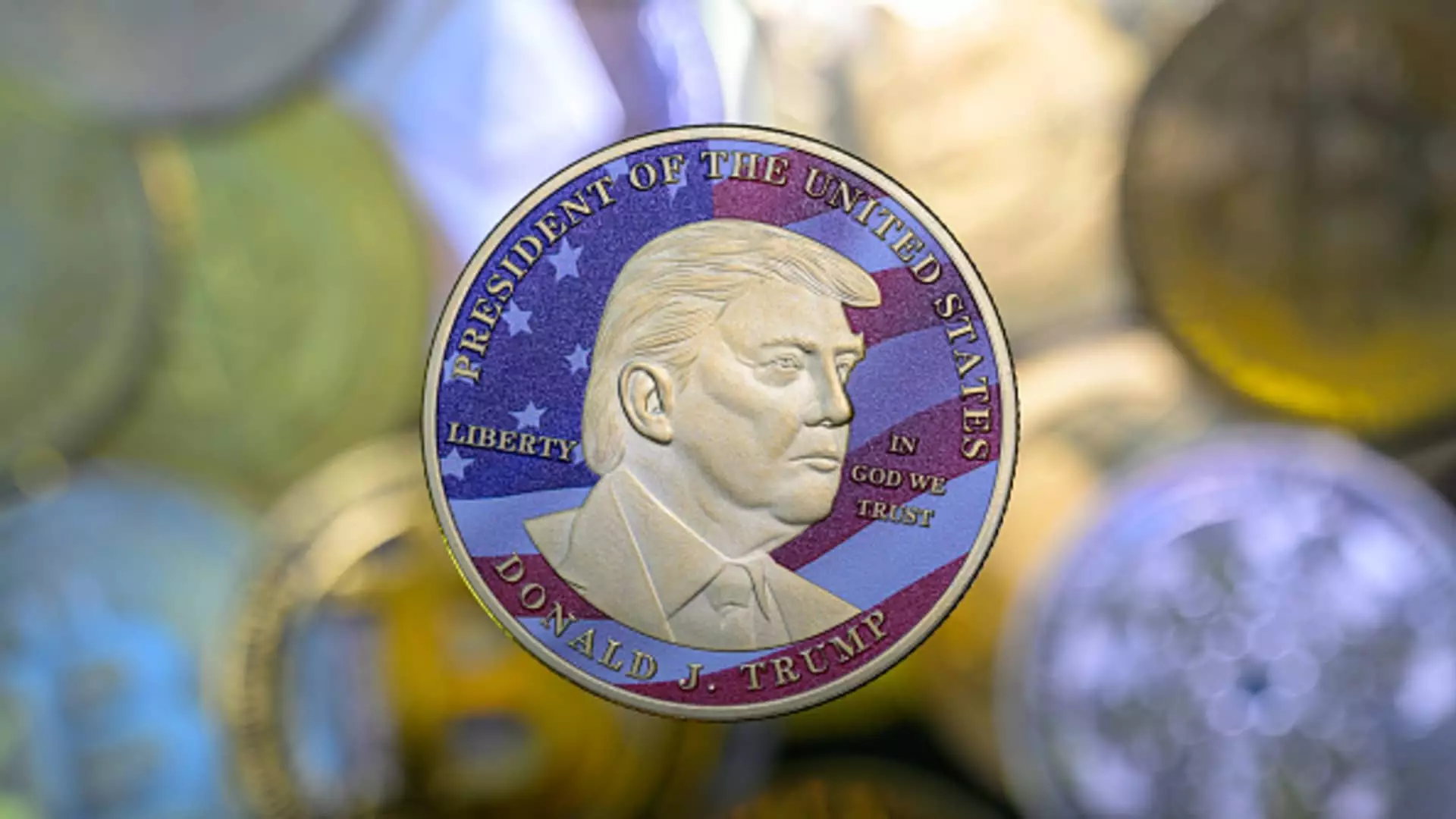In a political landscape fraught with ethical dilemmas, the recent actions of former President Donald Trump raise significant concerns that echo the age-old adage: “power corrupts, and absolute power corrupts absolutely.” Senators Adam Schiff and Elizabeth Warren have recently drawn attention to what they characterize as undeniable evidence of ‘pay to play’ corruption. Their focus is on a dinner invitation from Trump to the top 220 holders of his meme coin, $TRUMP, a move that has rightly provoked scrutiny. By offering exclusive access to those willing to invest substantially, Trump may be cleverly blurring the lines between private business interests and public service, creating a disturbing precedent for political fundraising.
The Financial Implications Are Disturbing
The timing of this invitation is nothing short of opportunistic; shortly after the announcement, the value of the $TRUMP coin soared by 50%. While financial gains can be celebrated in private industries, when combined with political access, they can cultivate dangerous dependencies that compromise governance. Senators Schiff and Warren explicitly state that this move could enrich Trump and his family at the potential expense of those who lack the financial means to engage in such lucrative ventures. The figures are staggering—upwards of $350 million in fees tied to entities associated with Trump since the coin’s launch speak volumes about the intertwining of politics and profit.
This raises critical questions about whether political office can be used as a bargaining chip in financial transactions. Such an action not only undermines democratic integrity but can also skew public policy in favor of the wealthiest members of society. Who will benefit most from legislation or government favors? The answer could be significantly influenced by who dines with the president.
Echoes of Conflict of Interest
The heart of the matter is the inherent conflict of interest that emerges when a sitting president positions himself at the nexus of governance and financial profit. Critics argue that such behavior invites allegations of corruption and undermines the belief that elected officials serve the public good above their private interests. Schiff and Warren also emphasize the prospect of foreign affiliations linked to these coin holders, raising alarms about the integrity of U.S. political leadership. When personal interests intersect with national priorities, betrayal of public trust becomes a very real danger, especially when geopolitical ramifications loom large.
Additionally, the government lacks robust mechanisms to curb such conflicts within the highest echelons of power. The Office of Government Ethics (OGE) has limited authority over a sitting president, a vulnerability that erodes public confidence. With the current administration’s allegiance to Trump, any ethics investigation may likely face a dismissal akin to tossed confetti—visual but without substance.
A Broken System or Just Politics?
Yet, there is a curious irony in this situation. While the power of executive influence is being questioned, fundamental questions about the effectiveness of contemporary ethics oversight remain unanswered. Schiff and Warren’s appeal to investigate Trump’s dealings with the crypto market highlights a persistent dilemma within American politics: how to maintain ethical governance in an age of rampant financial misappropriation.
Could it be that the relationship between politics and finance is so entwined that it is inherently resistant to reform, despite voters’ demands for accountability? The ongoing scrutiny of Trump’s activities reveals the precarious line politicians must walk between leveraging their positions for economic benefit and ensuring the health of democratic institutions.
In a polarized political arena, it’s crucial for center-right liberals like myself to advocate for accountability while recognizing the complex dynamics at play. Support for ethical standards should never be a partisan issue; suspicious activities need to be scrutinized regardless of which party is involved. Only through rigorous examination of these practices can we hope to uphold the integrity of our democratic institutions and restore faith in political leadership.

